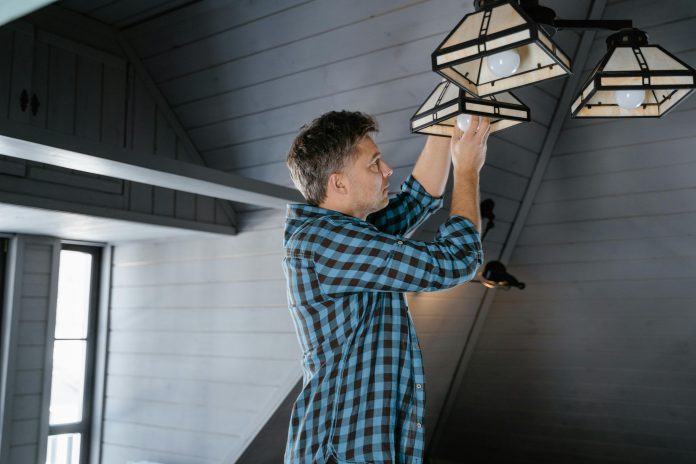A safe and reliable home starts with a properly functioning electrical system. However, many homeowners overlook warning signs of potential problems, which can lead to bigger issues down the line. Addressing these signs early can prevent hazards and costly repairs.
This article highlights common warning signs that something may be wrong with your home’s wiring or power supply. Knowing when to handle minor issues yourself and when to call a licensed professional is essential for maintaining a safe and efficient living environment.
1. Frequent Circuit Breaker Trips
Circuit breakers are designed specially to protect your home by shutting off power supply when a circuit becomes overloaded. Occasionally, a trip is normal and might occur when you plug in too many devices. However, frequent trips signal an underlying problem. If your breaker trips multiple times a week, it could indicate overloaded circuits, faulty wiring, or a malfunctioning appliance. While resetting the breaker might temporarily fix the issue, persistent trips require professional inspection to prevent potential hazards.
2. Flickering or Dimming Lights
If the lights in your home flicker or dim periodically, it can be more than just an annoyance. They may indicate an imbalance in your power supply, an overloaded circuit, or loose wiring. This issue could affect one fixture or multiple lights throughout your home. If your lights keep flickering, it’s essential to understand how to fix flickering lights in house. Common solutions include checking lightbulbs and tightening connections, but persistent flickering may need professional attention to address wiring or circuit issues safely. If DIY solutions have failed you, seek help from reliable professionals like Bellows Plumbing, Heating & Air for a permanent fix.
3. Scorched Outlets or Burning Smells
A burning smell from your outlets or switches is a warning sign. It could mean wires are overheating or melting, which poses a fire risk. Scorched marks or discoloration around outlets are also signs of damage. If you notice any burning odors, immediately unplug devices and turn off power to the affected area. Avoid using the outlet until a professional inspects and repairs the issue. Ignoring this warning sign can have dangerous consequences.
4. Warm or Hot Outlets and Switches
Outlets and switches should never feel warm to the touch. Excessive heat could mean the wiring behind the fixture is damaged or that the outlet is overburdened with too much power. This issue requires immediate attention to prevent further problems. Avoid using outlets or switches that feel hot, and unplug any connected devices. Contact a professional to investigate the cause. Replacing or repairing faulty components early can ensure your home’s safety and efficiency.
5. Buzzing or Humming Sounds
Buzzing or humming noises from outlets, switches, or appliances may indicate an electrical issue. These sounds often occur due to loose wiring, faulty connections, or voltage problems. While the noise might seem minor, it could point to a bigger problem. If the buzzing persists, turn off power to the affected area and call a professional to inspect it. Ignoring unusual sounds could lead to serious issues, such as power surges or electrical fires, down the line.
6. Frequent Light Bulb Burnouts
If you’re replacing light bulbs more often than expected, it could be a sign of an underlying issue. Frequent burnouts might occur due to high voltage, poor wiring, or using bulbs with incorrect wattage for the fixture. Before assuming it’s just bad luck, check the wattage compatibility of your bulbs and sockets. If the problem persists, have a professional assess your home’s wiring and voltage levels to ensure safety and efficiency.
7. Outlets Not Working Properly
Dead outlets or ones that only work intermittently are common signs of wiring problems. They can result from loose connections, tripped circuit breakers, or even damage inside the wall. If left unchecked, faulty outlets can pose safety hazards. If an outlet stops working, avoid using it until the issue is resolved. Test the breaker box to see if a circuit has tripped, and if that doesn’t fix the issue, call a professional to inspect and repair the problem safely.
8. High Electricity Bills Without Explanation
If your energy bills are unusually high and you haven’t changed your energy usage habits, it could signal inefficiencies or faults in your system. Common causes include outdated appliances, faulty wiring, or devices that consume power even when not in use. Start by unplugging unused devices and upgrading to energy-efficient appliances. If your bills remain high, have a professional inspect your system for hidden issues, such as faulty circuits or poor insulation, that could be driving up costs.
9. Shocks or Sparks When Using Outlets
Experiencing a mild shock when plugging in or unplugging a device is a red flag. Similarly, seeing sparks from an outlet is a serious issue that could indicate a short circuit or loose connections. These problems can escalate if ignored. If you notice shocks or sparks, stop using the outlet immediately and turn off power to the area. Contact a licensed electrician to diagnose and fix the issue. These signs should never be overlooked as they can lead to fires.
10. Old or Outdated Wiring
Homes with older wiring systems are more prone to problems, as outdated materials may not meet modern safety standards. Signs of old wiring include frequent issues like flickering lights, breaker trips, and dead outlets. If your home is over 30 years old, consider having your system inspected by a professional. Updating old wiring improves safety, increases the value of your home, and ensures compliance with current building codes.
Recognizing the signs of electrical problems is essential for maintaining a safe and efficient home. Whether it’s flickering lights, buzzing sounds, or frequent breaker trips, addressing these issues early can prevent larger problems and costly repairs. When in doubt, always prioritize safety by consulting a licensed professional. Attempting DIY fixes on complex issues can lead to more harm than good. By staying proactive and seeking expert help when needed, you can protect your home and family from potential hazards.

